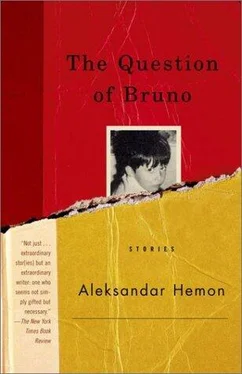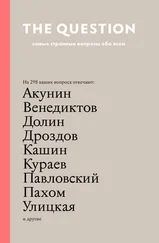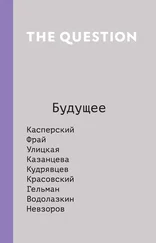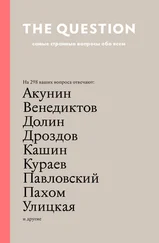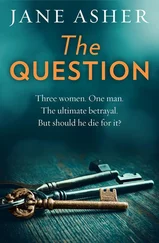IVO ANDRIC, a Bosnian, was the only Yugoslav author who has ever been awarded the Nobel Prize. In 1941, he worked in the Yugoslav embassy in Berlin, and helped organize trysts of cringing Yugoslav politicians with Hitler. He was a gentleman and wrote novels about the ways people are entangled with history. At the acceptance ceremony, he talked about the importance of bridges. In his youth, he was involved in organizing the Archduke’s assassination.
On APRIL 6, 1941, at dawn, Belgrade was relentlessly bombed by the Luftwaffe. That was the beginning of the German attack on the Kingdom of Yugoslavia, which lasted for eleven more hapless days.
AVALA is a breast-like mountain near Belgrade, with the tomb-tumor for the Unknown Serbian Soldier, built after World War I.
THE YALTA CONFEREN CE brought together Churchill, Roosevelt, and Stalin. The end of the war was in sight and they appeared to be the victors (“I’d like some Germany.”) When I was thirteen, I saw a photo of those three great men in Yalta, sitting in three wicker chairs, against the background of standing people whose names were as insignificant as their deeds. The three heads of the free world had something like a dim grin on their round faces, as though they had done a good, hard work (“Have some Germany.”) When I was thirteen, I thought that the picture was taken right after their lunch, because — as my father claimed — right after lunch is the best time, for people are “full and happy.” I thought that behind their dim grins they were trying to get out last bits of food from between their teeth. They gaze at me, full of borscht, sweet Crimean wine, and plans for the world. Within a few moments Churchill will be asleep, and I’ll be old, lacking significance, but not memories.
Now keep reading the book.
HISTORY, a description or recital of things as they are, or have been, in a continued orderly narration of the principal facts and circumstances thereof. History, with regard to its subject, is divided into the History of Nature and the History of Actions. The History of Actions is a continued relation of a series of memorable events.
— ENCYCLOPAEDIA BRITANNICA first edition (1769–1771)
The book was auburn, with black slanted letters on the spine reading “Spies of WWII,” and, impressed onto the front cover, black letters, tiny trenches, with golden brims, reading: The Greatest Spies of World War Two. The book was big and weighty. I’d put it on my knees, but then its weight would spread my legs and the book would close itself and slip to the floor. And I’d lie on my belly and rest my head on the scaffold of my hands and read. When my elbows would begin to ache, I’d recline my cheek on the thicker half of the book, incline the other half, feeling the sticky moisture connecting my cheek and a spy’s face, secrets of WWII just inches away from my absorbing pupils.
There were lots of black-and-white pictures: a five-man column — surrounded by soldiers pointing rifles — with their hands on the napes of their necks; when I would narrow my eyes, they’d look like black-and-white butterflies; the head of a chubby member of the Rote Kappelle , 1, with an asymmetrical face: nose slightly on the left side, right eye hardly opened and seemingly asleep, mouth kept shut with effort, as if there was a spring of blood behind the feeble lips — I just knew from his face that his hands (swollen wrists, bloody, burning trenches under the cuffs) were handcuffed; a picture of General Montgomery standing, arms akimbo, turned sideways, looking at the upper-left corner of the page, with the timeless beret parallel with his gaze: General Montgomery’s doppelganger, just the head, looking at me with odd pensiveness, as if painfully aware that he could never be General Montgomery; a row of blindfolded people in white in front of the ready firing squad and a smiling officer, his right arm raised, pointing at the upper-right corner of the picture. And, near the end, there was Sorge—”at the outset of his mission in Japan” 2—framed by a door behind his back, standing legs apart (left foot NW, right foot NE) in a dark trenchcoat, one hand pocketed, the other somewhat clenched, holding a purse or a camera case; and his head: fiendish ears, large and ill-shaped; lips shut tight, as if his teeth were biting the inside of his lower lip; the wide base triangle of his nose, its top angle connected, by two deep furrows, with two dark dots in the corners of his mouth; lightless twin-holes, at the bottom of which were his eyes; and the black-inked helmet of hair.
The picture was obviously retouched: Sorge’s anxiety was burdened with someone else’s curtained body. One could see the sharp cut at the verge of his collar, where his head, guillotined in a shadowy laboratory, was attached to a headless trenchcoat — plus an inexplicable excess of neck-flesh on the left side 3. But I believed that Sorge was in that trenchcoat. I believed that he was about to enter the door-apparition behind his back. I believed in the totality of that picture, I believed in the apparent, and I trusted books. I was ten.
In the winter of 1975, I began to conceive the idea that my father 4was a spy. He had been pursuing a degree at the Leningrad Energy Institute and had often been away, going to Leningrad or Moscow 5or Siberia or wherever far away. At the 1975 New Year’s Eve my father was in the middle of a blizzard, immobilized at the Moscow airport; my mother 6was staring through the window, watching snowflakes parachuting on Sarajevo; and I was patrolling our home, vaguely missing my father, anxious to accost Grandpa Frosty (in Socialist Yugoslavia, Santa Claus became Grandpa Frosty and used to arrive on New Year’s Eve) at the very moment of his arrival and force him to exchange a plain fountain pen and fluffy sweater (both of which he had sent in advance) for some spy devices. A poisonous fountain pen; 7a disguise kit 8(with a fake mustache and contact lenses that could change the color of my eyes); a matchbox containing a micro-camera; and a cyanide ampoule, were on the list of my desires. Tired of patrolling and longing, I asked my mother what she would think if I became a spy and she said she wouldn’t mind too much, but she would be afraid for me, just as she was afraid for my father and said she would be lonely and sad if I’d change my identity and forget about her and she said she wanted me to be better than my father, not to be somewhere else all the time. That night, falling asleep by the plastic tree, on guard for Grandpa Frosty, I was imagining my father being somewhere else, in a black trenchcoat, stealthily walking down a dark hall, stopping in front of a door, looking down the tunnel-like hall behind him, unlocking the door with something in his hand, entering the room (my dreamy gaze passing, like a camera, through the wall, following him), finding the desk drawer in the darkness, turning on the desk lamp, turning it away from the window, breaking the lock of the top drawer, taking the matchbox out of his pocket, taking the file out, photographing the documents 9(with blurred headings) with the matchbox (whose snapping I attempted to reproduce: “sllt sllt”). But wait, I hear footsteps, heavy thumping, I turn off the light, the footsteps open the door, cut the darkness with the flashlight, like a sword. I’m afraid that he (she?) could smell my fear, my heart is as loud as a tank engine, the door is closed and everything is fine, but I do not dare to be relieved. I uncurtain myself and continue photographing and then I hear a woman sobbing and there is another door and I open the door and a torrent of light rushes in, and a Japanese woman 10says, with a sorrowful smile: “You must go to bed now. Go undress yourself.”
Читать дальше
